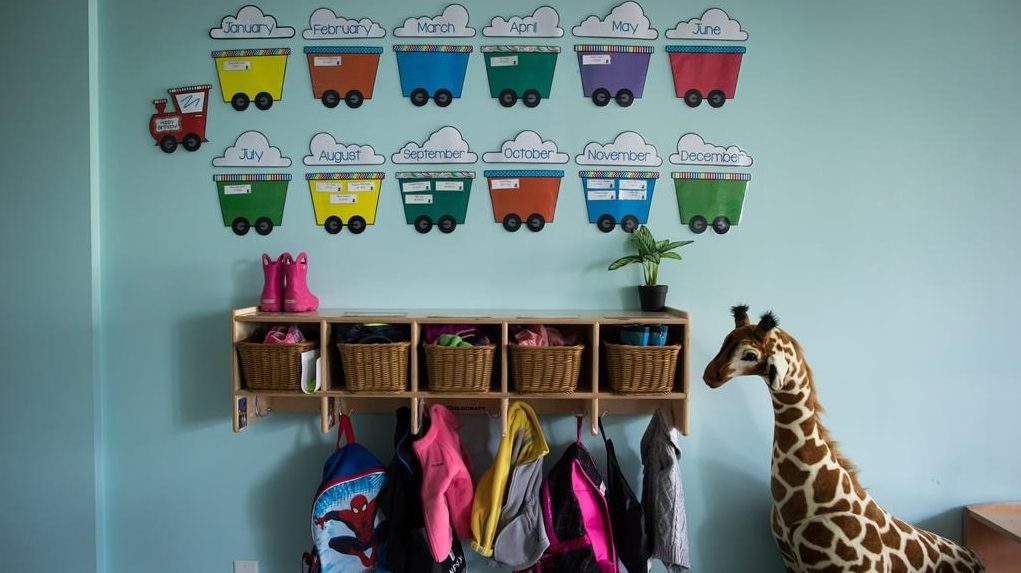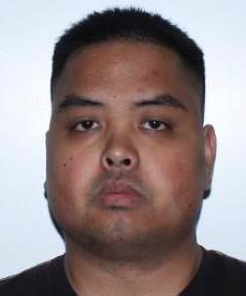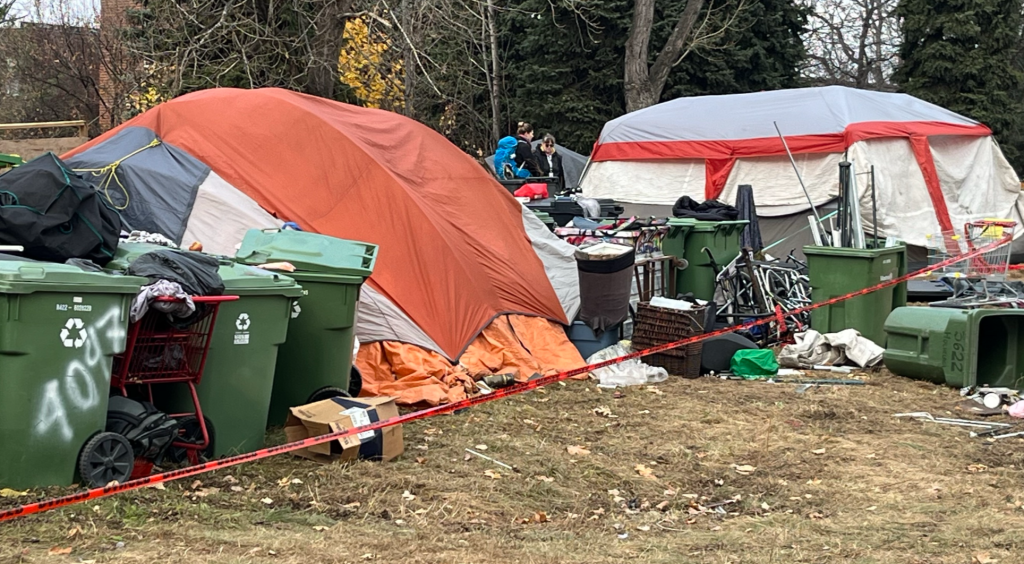Educational services deficient in nearly 30 per cent of daycares evaluated in Quebec: report

Posted May 24, 2024 9:42 am.
Last Updated May 24, 2024 10:05 am.
Since 2018, nearly 30 per cent of early childhood centers (CPE) and daycares have failed the educational quality assessment prepared by the Ministry of the Family.
The failure rate reached 41 per cent in 2022-2023.
Quebec auditor general Guylaine Leclerc tabled a voluminous four-part report in the National Assembly on Thursday that criticizes Suzanne Roy’s ministry.
Leclerc points out that, by law, every child has the right, within the limits of available resources and spaces, to receive personalized, quality educational childcare services.
However, the ministry has “done little to intervene” with childcare services which failed the evaluation, and the corrective actions put in place are insufficient, the report states.
In a news briefing, she established a “correlation” between failure rates and the lack of qualified personnel; the proportion of daycares without a ratio of two to three qualified educators rose from 32 per cent to 46 per cent between 2018 and 2023.
After reducing ratios during the COVID-19 pandemic, Quebec has set itself the objective of gradually returning to a regulatory ratio of two qualified educators out of three by April 2027.
At this rate, it will be “practically impossible” to get there, the auditor general predicted to reporters on Thursday.
Children’s health and safety
Moreover, the number of complaints relating to “inappropriate attitudes or practices” rose from 203 in 2018-2019 to 358 in 2022-2023, an increase of 76 per cent, she noted.
She gave an example of a complaint received by the ministry: “Educators (…) regularly use threats, sarcasm and humiliation in their interventions with children.”
In addition: “Great hostility (…) pulling the arm of a child, with clenched teeth and a furious face, moving a child by dragging him up to the wall, pushing him towards the ground.”
The ministry’s interventions are “insufficient to prevent frequent failures relating to the health and safety of children,” said Leclerc.
She mentioned in her report that expired medications, improperly stored toxic cleaning products and problems with verifying the absence of impediments occurred in more than 20 per cent of inspections.
She said police must establish whether the educator has previously engaged in certain behaviors (misconduct of a sexual nature, violent behavior, failure to provide the things necessary for life). If this is the case, the ministry or educational childcare service must decide whether the person is prevented from working in childcare.
The auditor general also found that more than 15 per cent of daycares have never been tested for lead in water.
Also, the ministry does not ensure adequate follow-up actions taken by those with a high lead level, she concluded in her report.
For example, 90 per cent of CPEs were inspected and 26 per cent of them exceeded the standard.
Minister Roy wants to reassure
“We have figures which show us that what we have been so proud of for 25 years, well, it is a network that’s deteriorating,” said Parti Québécois family spokesperson Joël Arseneau on Thursday. “The government, obviously, wants to do things quickly, but not necessarily better. (…) This report, I think, is extremely painful for the Minister of Families, but also for the families who use childcare services.”
Questioned at the National Assembly on Thursday, Quebec Minister of Families, Suzanne Roy, maintained that “the environments are safe” and that “we continue to constantly evaluate to improve the quality within the network.”
She said that “during the period covered by the audit, educational childcare services (SGEE) had to cope with the COVID-19 pandemic and a unprecedented shortage of workforce.”
“The mobilization as well as the constant and sustained efforts of the SGEE network have made it possible to ensure quality service despite the challenges inherent to the pandemic context,” she added.
Union reactions
In a press release published Thursday, the Association québécoise des CPE (AQCPE) expressed concern at the “serious alarm signal sent by a neutral body.”
“Although it also has challenges to meet, the CPE (…) is the model which generates the most quality and which is most likely to ensure the safety of children. Let’s choose it,” said Marie-Claude Lemieux, the company’s co-CEO.
The Centrale des syndicats du Québec (CSQ) and the Fédération des interventionantes en petite jeunesse du Québec (FIPEQ-CSQ) claimed that the auditor general’s report on the quality of early childhood educational services is distressing.
They demand “that the government take seriously the issues present in the network and make the necessary efforts to maintain qualified workers in place and thus ensure better quality of services.”
Educational quality assessment failure rate for 2022-2023:
- CPE: 21 per cent
- Subsidized daycares: 57 per cent
- Non-subsidized daycares: 59 per cent
- Failure rate for 2022-2023: 41 per cent
- Cumulative since 2018: 30 per cent
–This report by La Presse Canadienne was translated by CityNews








